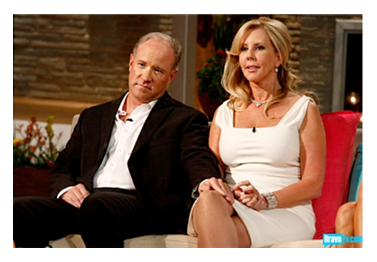I read this article yesterday, nodded at its logic, and moved on to other topics. It’s a brief discussion on the Huffington Post about women in their 40s having great sex – just not with their husbands.
 The article has a significant number of comments, and the discussion continues.
The article has a significant number of comments, and the discussion continues.
Or should I say – rages on?
Funny how the topic of sex does that, right? And infidelity in particular?
But I wonder if there would be as much stir if the genders were reversed and the article offered reasons that men seek sex outside their primary relationship – whatever the age. Perhaps this is another example of the sexual double standard?
Or are we interested in sexual behaviors regardless of gender, marital status, or age?
Guilty Pleasures
I glanced at the article by Samantha Parent Walravens again this morning, in part because I indulged in my own guilty pleasure late last night. Now, now. Pick your jaw up off the floor.
 The Reunion Show of the Real Housewives of Orange County – Parts 1 and 2.
The Reunion Show of the Real Housewives of Orange County – Parts 1 and 2.
I’m not sure when the episodes aired originally (last week and earlier last evening?), and I make no bones about Bravo in the background at night when I’m doing this and that around the house.
More to the point, all manner of barbs, accusations, and revelations flew – including years of infidelity which was known and apparently accepted in one of the marriages (Vicki’s), issues of emotional affairs, physical affairs, and the distinctions among stages in marriage, legal separation, and divorce as the women on the show “transitioned” from one relationship to the next.
Those issues of transitional relationships are a whole other topic, for another day.
My point isn’t to discuss these particular women, to judge their behavior (or anyone else’s), but to highlight how human it is to question oneself at certain stages in life, to feel at loose ends and searching for something that grounds you, not to mention surrendering to the needs of the body and the mind when you’re in a place of emotional vulnerability.
And aren’t we all particularly vulnerable at midlife? Subject (more or less) to male and female variations of personal, professional, biological and familial disorientation?
Statistics on Marital Infidelity
While the article presents stats and reasons for female infidelity, the author cites a study at Indiana University, writing:
The study showed that 19 percent of married women and 23 percent of married men reported cheating, statistics that reflect a closing of the cheating gender gap. (Note: These numbers are probably on the conservative side because they reflect the percentage of people who admitted to cheating.
She also points out that these figures are up since 1990, when only 10 percent of married women admitted to marital infidelity.
While this is all interesting in and of itself – depending on our perspectives, we could term it sad, worrisome, no big deal – what interests me is the way the main points highlight the inevitable changes in midlife that can cause us to question, to seek something new, and to initiate or succumb to an appealing and different way to live.
Even if only temporarily. Even if it puts our family lives at risk.
Reasons for Infidelity
 The reasons Ms. Walravens mentions for women committing infidelity in their 40s include feeling greater freedom as the “mommy” stage lets up, greater confidence which is enhanced by career, feeling neglected or unappreciated by their husbands, a shift in hormones that makes them more desirous, the need to boost self-esteem, and revenge – when the spouse has cheated.
The reasons Ms. Walravens mentions for women committing infidelity in their 40s include feeling greater freedom as the “mommy” stage lets up, greater confidence which is enhanced by career, feeling neglected or unappreciated by their husbands, a shift in hormones that makes them more desirous, the need to boost self-esteem, and revenge – when the spouse has cheated.
To me, these reasons (and the others explained in the article) seem a no-brainer. The only one that surprised me was the shifting hormones (more testosterone), which I’d never considered previously. What isn’t explicitly stated in the article is the possibility of a sexual mismatch during marriage, much less the precarious perch of midlife: we begin to look back and see what and who we aren’t any longer; we look ahead and wonder if what remains is “more of the same and nothing more;” we may recognize that our bodies are beginning to change, and opportunities to explore our sexuality may be dwindling.
And for some women, there was little exploration before marriage, which more typically isn’t (or wasn’t) the case for men. Or perhaps it’s all simpler than we make it. We aren’t made to be monogamous for 40 or 50 or more years, whether or not society accepts that or not.
Your thoughts?
Image courtesy BravoTV.com. Click image of Vicki and Brooks to access original at Bravo TV.
You May Also Enjoy
I will limit my reply because we’ve trod this ground before.
Cheating…. according to Wiki (briefly)
1. Act dishonestly
2. Deceive or trick.
(Unfaithful/Infidelity are other words I would consider close to synonymous with cheating in this context, and your post uses these words almost interchangeably. And you know where I’m going with this.)
I’ve always worked at being open and honest (which is often not easy). This doesn’t excuse lack of consideration, of course, even where there is no love. So I’ve shared some significant experiences, but never cheated. If it’s common in some relationships/situations, let’s at least be honest about it unless others do not wish to know more.
Agreed, though you know I generally choose my words carefully. “Cheats” may apply, when one is surprised finding out their partner’s actions. Your situation which you raised some time back was very different. But yes, “cheats” is one thing, and extramarital involvements don’t necessarily constitute cheating by the word’s literal definition.
And monogamy, Paul? Do you think it’s possible, necessary, or as individual as the people (and relationship) involved?
Cheating, infidelity, unfaithfulness – Why do women want equality in areas where men behave badly? Having said that, I am not surprised women are closing the gap.
Whether a marriage can survive a spouse wandering outside of the marriage will depend on the couple. Not everybody can or will forgive that type of betrayal. However, I do think it is possible.
I do not appreciate the concept of open marriage, where people agree to stay married and see other people, especially if there are children involved. That is just too confusing for kids; who do not miss anything.
Thankfully, I am not the marriage police.
I do think monogamy is possible.
Agree with Robin — monogamy is indeed possible, and I have seen a fair number of such marriages among those I know well, including my parents. Personally, it is what I intend as part of true marriage (note word “true” as opposed to the over-burdened legal definition — I’ve spoken on this topic before also). To pretend that monogamy is not “natural” is a cop out that glosses over the many issues involved.
“We are not made to be monogamous”, as you state, *if* we accord precedence to our sexual urges and have low impulse control. Monogamy is a social arrangement we make by choice, and implementing that choice takes discipline and good problem-solving skills. It requires use of the more evolved part of the brain, the executive function.
Do I sound like a conservative, religious person? Nothing could be further from the truth. I have been married three times and am very experienced with infidelity from the first two.
If you really believe that monogamy is not possible, simply don’t get married or make a commitment to fidelity. If you once thought you could do it and now cannot, end the marriage immediately and do not enter another one.